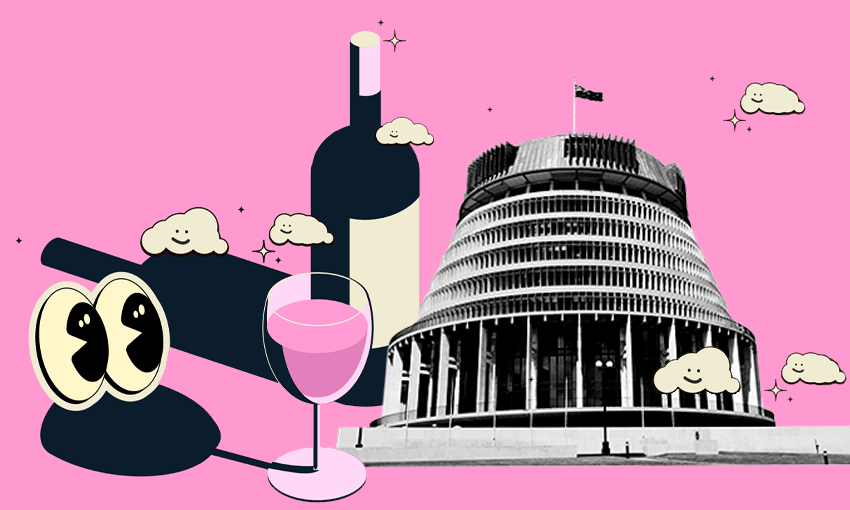Kua whakanui i ngā toki o te whakarauoratanga i te reo Māori i ā rātou tokonga, ki tētahi kaupapa hirahira i tū ki Tāmaki Makaurau.
Pioneers in the te reo Māori revitalisation movement have been recognised for their contributions at a special event in Tāmaki Makaurau.
Read this story in English here.
He mea whakahaere a Ngā Kākā Kura o te Reo Māori e Te Taura Whiri i te Reo Māori me Te Mātāwai ki te hōtera Cordis, ki Tāmaki i te pō Paraire.
The inaugural Māori Language Honours – Ngā Kākā Kura o te Reo Māori was co-hosted by Te Taura Whiri i te Reo Māori and Te Mātāwai at the Cordis hotel in Auckland on Friday night.
READ MORE:
* He hoa haere mōu, e tama: Ā Tom Roa kōrero mō te oranga tonutanga o te reo Māori
* Tērā tētahi wā i tata hoepapatia te reo Māori i Aotearoa
* How about a mihimihi, introducing yourself, in te reo Māori?
“Anō te pai o te whakanui i ērā kaiwhakatūtū i te reo Māori, te para ai i te huarahi o te whakarauoratanga o te reo Māori,” tā te tauākī a te tumuaki o Te Taura Whiri i te Reo Māori, Ngāhiwi Apanui.
“It’s wonderful to be here acknowledging those language activists who laid the foundations for the revitalisation of te reo Māori,” said Te Taura Whiri i te Reo Māori chief executive Ngāhiwi Apanui in a statement.
supplied
“E whakapono ana mātou, nō Aotearoa te reo Māori, nō ngāi Aotearoa whānui,” tā Ngahiwi Apanui, te tumuaki o Te Taura Whiri i Te Reo. / “We believe that te reo Māori is New Zealand’s language and a language for all New Zealanders,” says Ngahiwi Apanui, Te Taura Whiri i Te Reo – Maori Language Commission tumuaki.
E tae rā anō ana ērā i whakamānawatia ki ngā rōpū Ngā Tamatoa me Te Rōpū Reo Māori i whanakehia ai te Petihana Reo Māori i te 1972.
Among those honoured were groups including Ngā Tamatoa and Te Reo Māori Society who helped spearhead the 1972 Māori Language Petition.
Ko tā te petihana he tono i te whakarewanga i te reo Māori ki ngā kura, ā, i koni atu i te 30,000 ngā waitohu tautoko.
The petition called for the introduction of te reo Māori in schools and received more than 30,000 signatures in support.
Tērā hoki te kaupapa Kōhanga Reo i whakanuia, ā, kua 40 tau i te tau nei, waihoki ko Te Matatini, e whakanuia ana tōna huringa tau 50, ko Te Reo Irirangi o Te Upoko o Te Ika, me Ngā Kaiwhakapūmau i te Reo hoki i ā rātou whāngaitanga i te whakamana ōkawa i te reo Māori.
The Kōhanga Reo movement which marked its 40th anniversary this year, Te Matatini, celebrating its 50th anniversary this year, radio station Te Reo Irirangi o Te Upoko o Te Ika, and Ngā Kaiwhakapūmau i te Reo for its contribution to official recognition of Māori language were among those singled out for recognition.
David White / Stuff
On September 14, 1972, Rawiri Paratene was among the group that presented the Māori language petition to Parliament. The petition became the starting point for a significant revitalisation of te reo. (First published September 9, 2022.)
“E whakapono ana mātou, nō Aotearoa te reo Māori, nō ngāi Aotearoa whānui,” tā Ngahiwi.
“We believe that te reo Māori is New Zealand’s language and a language for all New Zealanders,” said Apanui.
“He putanga nō te ihu i ngā tau e 50 kua hori e nako nei mātou ka tutuki tērā whāinga kia 1 miriona ngā māngai reo Māori hei te 2040.”
“The achievements over the last 50 years give us hope of achieving the goal of 1 million speakers of te reo Māori by 2040.”
I whakamanahia takitahitia a Esther Jessop (QSM), he nui nō āna whāngaitanga i a Ngāti Rānana.
Esther Jessop (QSM) was individually recognised for her contribution to Ngāti Rānana, also known as the London Māori Club.
He pō whakanui, engari i whakatūpato atu te tumu o Te Mātāwai, Toihau Poia Rewi, he nui tonu ngā mahi ki mua i te aroaro.
While it was a night for celebration, Te Mātāwai chief executive Professor Poia Rewi cautioned there was still more work to be done.
“Kei te ngākau aroha, te whakapau kaha, me ngā pūkenga o te makiu te angitu o te whakarauoratanga i te reo Māori.
“The success of the Māori language revitalisation movement hinges on the continuing goodwill of many people volunteering their time, energy, and expertise.
“Ahakoa te iti o ngā rawa, inā rā te pai o tā ngā kaihautū hapori me ngā kaiwhakaora reo Māori poipoi i ngā pūmanawa e kore ai te reo e ngaro, heoti tonu, me mataara mārika mātou ki te whakapetonga katoatanga o tēnei ngoi.”
“While community leaders and Māori language proponents are certainly adept at creating conditions for language acquisition despite scant resourcing, we must be acutely aware of the limits to this energy.”





















Discussion about this post